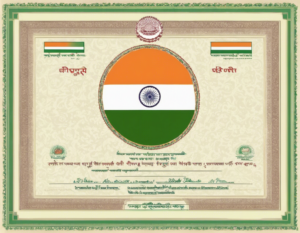Translation Services: Enhancing Global Communication
In today’s interconnected world, the need for effective communication across different languages continues to grow. Whether for business, travel, education, or personal reasons, translation services play a crucial role in breaking down language barriers and facilitating understanding between individuals and cultures. This article will delve into the importance of translation services in enhancing global communication, the various types of services available, and tips for selecting the right translation service provider.
The Importance of Translation Services
Bridging Language Gaps
Effective translation services bridge the gap between individuals who speak different languages, allowing them to communicate and understand each other’s perspectives. This is critical in a globalized world where businesses operate across borders and people from diverse backgrounds interact daily.
Facilitating Business Growth
For businesses, translation services are essential for reaching a wider audience and expanding into new markets. Accurate translations of marketing materials, websites, and legal documents help businesses convey their message effectively to customers worldwide.
Improving Global Collaboration
In a globalized workforce, collaboration often involves teams spread across different countries. Translation services facilitate smooth communication among team members, enabling them to work together seamlessly despite language differences.
Preserving Cultural Diversity
Translation services play a vital role in preserving and promoting cultural diversity. By translating literary works, historical documents, and art, these services ensure that valuable cultural heritage is accessible to a broader audience.
Types of Translation Services
Written Translation
Written translation involves rendering text from one language to another, maintaining the original meaning and tone. This type of translation service is commonly used for documents, reports, websites, and marketing materials.
Interpretation
Interpretation refers to the oral translation of spoken words in real-time. There are two main types of interpretation: simultaneous interpretation, where the interpreter speaks while the speaker is talking, and consecutive interpretation, where the interpreter speaks after the speaker has finished.
Localization
Localization involves adapting content to suit the cultural preferences and nuances of a specific region or target audience. This goes beyond mere translation to consider factors such as local customs, dialects, and idiomatic expressions.
Selecting the Right Translation Service Provider
Expertise and Experience
When choosing a translation service provider, look for experience in the relevant industry or subject matter. A provider with expertise in legal translations may not be the best choice for marketing materials.
Quality Control Measures
Inquire about the service provider’s quality control processes, such as proofreading, editing, and quality assurance checks. Quality assurance certifications like ISO 17100 indicate a commitment to high standards.
Technology Integration
Choose a translation service provider that leverages technology for efficient and accurate translations. Tools like Computer-Assisted Translation (CAT) software can aid in maintaining consistency and improving turnaround times.
Confidentiality and Data Security
Ensure that the service provider has robust data security measures in place to protect sensitive information. Confidentiality agreements and secure data transmission protocols are essential considerations.
FAQs about Translation Services
1. What is the difference between translation and interpretation?
Translation refers to written content, while interpretation involves oral communication in real-time.
2. How do I determine the quality of a translation service provider?
Look for certifications, client testimonials, industry experience, and quality control processes.
3. Can machine translation replace human translators?
While machine translation has its place, human translators are essential for accuracy, nuance, and cultural nuances.
4. How much does translation services cost?
Translation costs vary based on factors like language pairs, complexity, and turnaround time. Request quotes from multiple providers for comparison.
5. How can I ensure confidentiality when using translation services?
Choose a provider that prioritizes data security, signs confidentiality agreements, and uses secure data transmission methods.
In conclusion, translation services are indispensable for facilitating global communication and breaking down language barriers in an increasingly interconnected world. By choosing the right translation service provider and understanding the different types of services available, individuals and businesses can bridge linguistic divides and foster meaningful interactions across cultures.














Post Comment